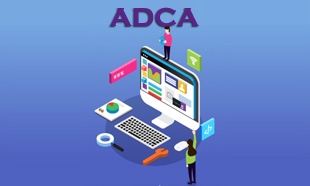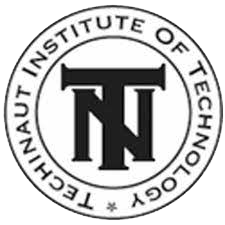ADVANCE DIPLOMA IN COMPUTER APPLICATION
GD Computer Class, situated in Una, Gir Somnath, Gujarat, is proud to offer the one-year comprehensive Advanced Diploma in Computer Application (ADCA). This program, a franchise of the esteemed Techinaut Institute of Technology, is designed to equip students with advanced computer skills, covering various aspects of computer application and technology. With a blend of theoretical knowledge and practical applications, students undergo a transformative learning experience, fostering personal growth and preparing them for diverse career opportunities in the digital age.
COURSE OVERVIEW:
The ADCA program starts with a foundational module on the Basics of computers. This segment provides a thorough understanding of computer hardware, software, and the principles governing their interaction. Students delve into the core components, learning about CPUs, memory, storage, and peripheral devices. The emphasis is on building a strong foundation, ensuring participants are well-versed in the fundamental workings of a computer system.
1. Basic of Computer:
The course commences with an exploration of the fundamentals of computing, encompassing the history, evolution, and components of computers. Students delve into the world of hardware and software, input and output devices, and the basics of computer operations. This module not only lays the foundation for understanding the principles and functioning of computers but also emphasizes the practical applications of this knowledge in real-world scenarios.
2. Computer Appreciation:
Students gain an understanding and appreciation of computers' role in modern society. They explore the various applications of computers across different industries and sectors, emphasizing their significance in enhancing productivity and efficiency.
3. Computer Organization:
This module delves into computer architecture and organization. Students learn about the internal components of a computer system, including the CPU, memory, storage devices, and input/output systems. Understanding computer organization is crucial for troubleshooting and optimizing system performance.
4. Operating System:
Students are introduced to different operating systems, with a focus on popular platforms such as Windows, macOS, and Linux. They learn about the functions of an operating system, file management, user interface navigation, and system customization. Practical exercises enable students to navigate and utilize various operating system features effectively.
5. MS Word Processing:
This module focuses on Microsoft Word, a widely used word-processing software. Students learn essential skills such as creating, formatting, and editing documents. They explore features such as spell check, grammar check, tables, graphics, and document templates. Advanced topics include mail merge and collaboration tools.
6. MS Spreadsheet Package:
Students delve into Microsoft Excel, a powerful spreadsheet application. They learn to create, format, and manipulate spreadsheets for data analysis and visualization. Topics include formulas, functions, data sorting, filtering, charts, pivot tables, and conditional formatting. Practical exercises simulate real-world scenarios, enhancing students' analytical skills.
7. MS Presentation Package:
This module covers Microsoft PowerPoint, a popular presentation software. Students learn to create dynamic and engaging presentations using slides, graphics, animations, and multimedia elements. They explore design principles, slide layouts, transitions, and delivery techniques for effective communication.
8. Information Technology and Society:
Students examine the impact of information technology on society and individuals. They explore ethical, social, and legal issues related to technology use, including privacy, security, intellectual property, and digital rights. Case studies and discussions encourage critical thinking and ethical decision-making.
9. Introduction to Internet:
Students are introduced to the basics of the Internet, including its history, structure, and functionality. They learn about Internet protocols, web browsers, search engines, and web navigation. Practical exercises familiarize students with accessing information online and effectively utilizing Internet resources.
10. Internet Network:
This module explores the concepts of Internet networking, including LANs, WANs, intranets, and extranets. Students learn about network protocols, addressing schemes, and security measures. They also gain practical experience setting up and configuring network connections, troubleshooting common network issues, and implementing security protocols.
11. E-Mail:
Students learn the fundamentals of electronic mail (e-mail) communication. They explore e-mail etiquette, composing and sending messages, managing e-mail folders, and using e-mail features such as attachments, signatures, and filters. Practical exercises involve creating and managing e-mail accounts, organizing messages, and communicating effectively via e-mail.
12. Introduction to Programming:
This module provides an introduction to programming concepts and principles. Students learn about algorithms, flowcharts, and pseudocode as tools for problem-solving and program design. They understand programming logic, variables, data types, control structures, and modular programming techniques.
13. Algorithms for Problem Solving:
Students develop problem-solving skills through the study of algorithms and algorithmic problem-solving techniques. They learn to analyze problems, devise algorithms, and implement programming language solutions. Practical exercises involve algorithm design, implementation, testing, and debugging.
CONCLUSION:
The Advanced Diploma in Computer Application (ADCA) offered by GD Computer Class is a comprehensive program designed to equip students with advanced computer skills and knowledge. With a curriculum covering essential topics such as computer basics, software applications, internet technologies, and programming fundamentals, graduates are not just well-prepared, but they are also primed for diverse and exciting career opportunities in information technology. Through theoretical learning and hands-on practice, students develop the expertise and confidence to succeed in the ever-evolving world of technology. Join us at GD Computer Class and embark on a rewarding journey toward a successful and fulfilling career in computer applications.
 ADCA (GCEC)
1 × ₹13,000.00
ADCA (GCEC)
1 × ₹13,000.00  TALLY ERP9 SWCE
1 × ₹4,000.00
TALLY ERP9 SWCE
1 × ₹4,000.00  TALLY ERP9 DWCI4
1 × ₹4,000.00
TALLY ERP9 DWCI4
1 × ₹4,000.00  ADVANCE DIPLOMA IN COMPUTER APPLICATION (COSO)
1 × ₹10,000.00
ADVANCE DIPLOMA IN COMPUTER APPLICATION (COSO)
1 × ₹10,000.00  DIPLOMA IN COMPUTER APPLICATION (KIOT)
1 × ₹13,000.00
DIPLOMA IN COMPUTER APPLICATION (KIOT)
1 × ₹13,000.00  COMPUTER HARDWARE (SRKI)
1 × ₹10,000.00
COMPUTER HARDWARE (SRKI)
1 × ₹10,000.00  DIPLOMA IN COMPUTER APPLICATION (MCEZ)
1 × ₹22,500.00
DIPLOMA IN COMPUTER APPLICATION (MCEZ)
1 × ₹22,500.00  DESKTOP PUBLISHING (SRKI)
1 × ₹10,000.00
DESKTOP PUBLISHING (SRKI)
1 × ₹10,000.00  ADVANCE EXCEL (CDCO)
1 × ₹13,000.00
ADVANCE EXCEL (CDCO)
1 × ₹13,000.00 

